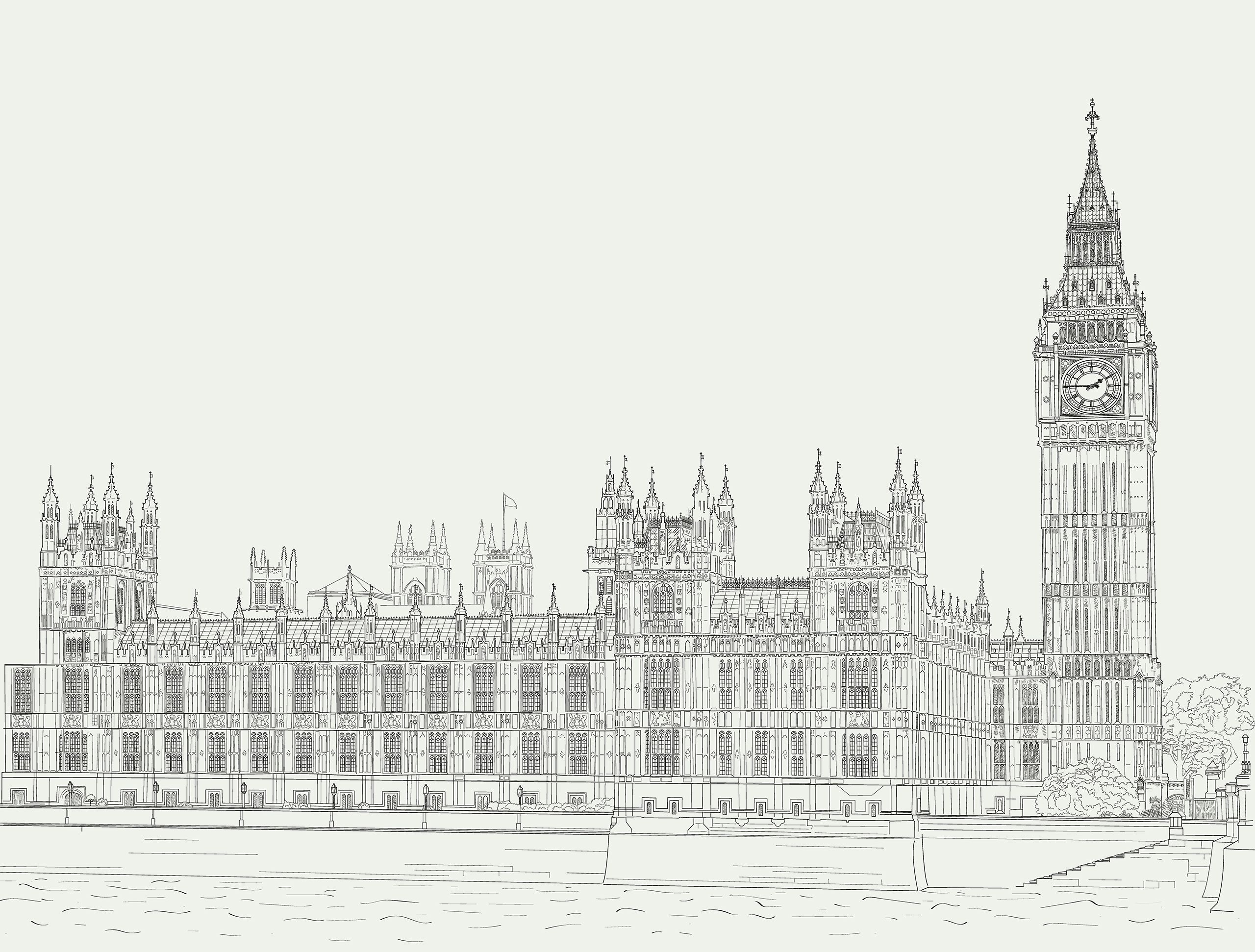WESTMINSTER REFLECTIONS
In opposition for the first time in 14 years, regular DIPLOMAT magazine contributor Sir Bernard Jenkin MP offers his views about the UK’s new government

The outcome of the UK’s general election on 4th July remains astonishing, but reality is already dawning on the new government.
In the Conservative Party, now much diminished, we sit alongside the LibDems, who match more than half our number. The opposition parties look across the House at a mass of Labour MPs, many of them completely unknown to us.
You would expect Labour still to be jubilant and the opposition to feel cowed. In fact, Conservatives are heartened by Labour’s plunging poll ratings and feel they have already wounded Labour for their sudden decision to scrap the pensioners’ winter fuel allowance of £300. The LibDems certainly are jubilant at their remarkable resurrection to over 60 seats. Labour is somewhat shocked (particularly the new MPs) by the backlash against Labour since the election. Each must be dealing with hundreds of hostile emails. It is unusual to have such a large rebellion so soon after their stunning victory, and unprecedented for a newly elected party to see a poll that puts them below 3per cent, when they should still be enjoying a honeymoon.
The new government’s political strategy is to amplify every woe facing voters to the highest extent and blame it on the Conservatives. They hope that the blame will stick for years to come. Even after 14 years of Conservative government, at the election, voters remembered the end of the Blair-Brown era was marked by the outgoing Labour Treasury minister leaving a note for his successor, which said: “There is no money left.” Will Labour’s strategy work for them this time? Probably not.
In July, Labour inherited a far better immediate economic situation from the Conservatives than seemed possible a year or so before. Inflation was back to 2 per cent. The expectation was that interest rates would fall. Growth had been faster than our major European competitors for some years. Both the unemployment rate (4.1 per cent) and the annual deficit (3.1 per cent of GDP) were both lower than when Labour was ejected from government in 2010 (9.7 per cent and 8.6 per cent of GDP).
Yes, there are some big persistent economic problems, but these structural trends have been adverse since the 1980s: a continuous trade deficit (£38 billion in 2023, or 2.3 per cent of GDP), offset by capital inflows from abroad, largely to fund consumption. That certainly cannot go on for ever. We allow spending on welfare, pensions and health to grow, while we squeeze defence, and other programmes. Demographic trends are increasing these pressures. Large scale immigration cannot solve this. The Office of Budget Responsibility (OBR) has reported that low-skilled immigration is a net cost to the economy, and it also dilutes GDP per capita.
Even after 14 years of Conservative government, at the election, voters remembered the end of the Blair-Brown era was marked by the outgoing Labour Treasury minister leaving a note for his successor, which said: “There is no money left.”
Labour talks about higher growth as the long-term solution. They show no sign of learning from George Osborne’s failed mantra in the 2010-15 period of ‘austerity:’ that the Conservatives would share the proceeds of economic growth between increased spending on public services and lower taxation. We failed to deliver, because so much else happened, like the eurozone crisis, Covid, or Russia’s decision to force up gas prices and to attack Ukraine. The same will happen again, but worse.
Labour look highly unlikely to deliver higher growth. Their decisions to award inflation busting wage increases in sectors like rail and health will renew inflationary pressures, and may delay interest rate cuts. It is their policy to increase taxes on capital and wealth, and claw back tax allowances on savings and pension contributions. They support high levels of regulation, alongside increased state ownership, in sectors like trains, buses and energy. The OBR also reported recently that on present trends, the UK national debt over the next 50 years will rise to 274 per cent of GDP and is unsustainable. Higher taxes will not fix this, because they will depress growth.
The UK is not special in this respect. All the mature economies of the world are facing similar crises in the medium- to long-term. The eurozone in particular is likely to face an earlier crunch, as Former European Central Bank chief Mario Draghi has pointed out.
If Labour are clinging to a failed economic model, the UK needs a more realistic approach to net zero. By failing to support plans for new oil and gas drilling off the UK, they will increase UK dependency on energy imports, destroy jobs and worsen the trade deficit. Their mantra that renewables generate cheaper electricity than gas fails to reflect that renewables are intermittent, require massive investment in the national grid, and must be balanced with other fuels or expensive electricity imports to keep the lights on.
Add to all this the other challenges facing the nation. Defence spending must be increased to address the risks that arise from the collapsing global order. Defence chiefs are warning of the possibility of an impending war with Russia, for which no NATO country is fully prepared, not even the US. International tensions and recent shocks to world trade are leading to deglobalisation. Digitisation of everything alongside the growing capability of AI is accelerating the pace of change and the unpredictability of events. And Labour will face the same difficulties trying to grip immigration as the Conservatives.
Don’t expect this government to be much of a success. I hope that we Conservatives are learning from our own failures and will be fit to face all the challenges by the time of the next election.
